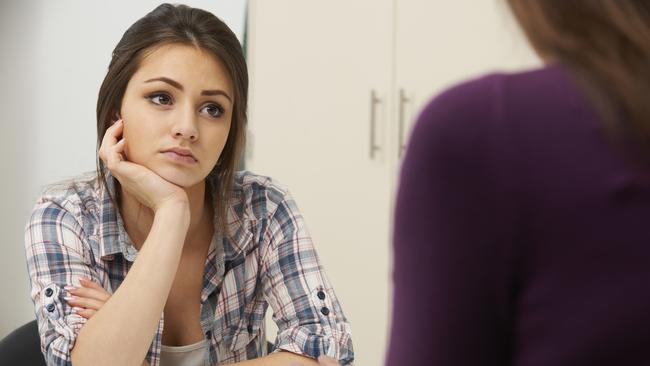Children’s health expert Dr Yvonne Parry gives advice on how to help children process events they see on the news
One of South Australias leading experts in children’s health gives some advice on how to help young people cope with “intensive and frightening feelings” brought on by tragic events, such as the double shooting near Millicent.
Local
Don't miss out on the headlines from Local. Followed categories will be added to My News.
Reminding children that they are surrounded by people who love them helps them cope with feelings of panic and fear, says one of SA’s leading experts in children’s health.
Dr Yvonne Parry, from the College of Nursing and Health Sciences, said children and adolescents learning about tragic news – like the Millicent double shooting of two 19 year olds, bushfires, COVID-19 deaths or personal loss like a death in the family – could be experiencing “intensive and frightening feelings”.
“Reassure them that they are safe,” Dr Parry said.
“Remind them that they are surrounded by people who love and care about them and that it is a time to come together as a family and a community to support each other.”
She said in the case of big news events, most children and teenagers were aware of what was going on in the media, but might not always have the verbal skills to express their emotions.
“It’s really important to give them the opportunity to talk about how they are feeling,” Dr Parry said.
“Always raise it so you’re on the front foot and they know their feelings are important.
“And never lie to them about what is going on.”
She said sometimes adolescents claimed to not care or be affected by a tragic incident they had seen on the news or read about on social media.
“Don’t assume this is actually the case,” Dr Parry said.
“If they say, ‘I heard about it and I don’t care’, I would offer ‘It’s sad for the families and for the community’ and wait to see if they respond.
“Put it in perspective, that this is an awful thing but at the same time there is a lot of good things happening around them.”
She said signs a young person was struggling included not eating, not sleeping, nightmares, mood swings and becoming obsessed with the news and social media.

Dr Parry said if parents noticed any of this behaviour in their children, they should immediately seek professional help.
“Better to address these things early on than to let it fester,” she said.
Dr Parry said tragic events like this one presented an opportunity to speak to young people about the pitfalls of social media, and how it can take on a life of its own.
“Tell them the stuff on social media is not always helpful for families or communities trying to deal with an incident like this,” she said.
“People can be vilified and it is not always based on evidence.”
